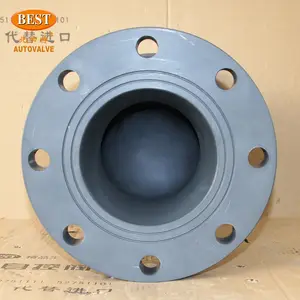Understanding Tester Valves
Tester valves are essential tools in various industries, designed to assess the functionality and integrity of different types of valves. These devices are crucial for ensuring that valves operate correctly and safely, which is vital in systems where flow control is critical. The tester valve category encompasses a range of instruments tailored to specific testing requirements, from simple pressure checks to more complex diagnostic evaluations.
Types of Tester Valves
The diversity of tester valves includes specialized devices such as the valve spring tester, which measures the spring force in valve assemblies, and the valve body tester, used to verify the operational readiness of the valve's housing and internal components. For those working with engines or pneumatic systems, the compression spring tester is indispensable for ensuring springs within the valve mechanism maintain the correct tension. In the realm of emissions control, the egr valve tester and egr solenoid valve tester are tools designed to diagnose the functionality of exhaust gas recirculation systems, a critical component for reducing vehicle emissions.
Applications and Features
Tester valves serve a broad spectrum of applications. The valve spring pressure tester is commonly used in automotive and mechanical engineering to ensure valve springs exert the proper force, a critical factor for engine performance. In electronics, the iac valve tester and idle air control valve tester are vital for maintaining the correct idle speed in vehicles. For fire safety equipment, the fire valve tester is a specialized tool that checks the operation of valves used in fire suppression systems.
Features of these testing devices vary, with some offering digital readouts for precision, while others provide analog gauges for quick visual inspections. The valve seat vacuum tester is particularly noted for its ability to detect leaks using vacuum pressure, a feature that is essential for maintaining system integrity.
Materials and Advantages
Tester valves are constructed from a variety of materials, each selected for durability and performance under specific testing conditions. Many testers are made from hardened steel or aluminum for longevity, while others may incorporate rubber and plastic components for ease of handling and operation. The advantages of using these tools are numerous, including the prevention of equipment failure, assurance of safety standards, and the extension of the lifespan of valve components.
Choosing the Right Tester Valve
Selecting the appropriate tester valve requires an understanding of the valve's application and the specific testing needs. For instance, the rimac valve spring tester and rimac spring tester are renowned for their precision in measuring spring tension, making them a preferred choice in high-stakes settings. Meanwhile, the valve pressure tester and valve vacuum tester are versatile tools for a variety of pressure-related testing scenarios.
Incorporating the right tester valve into maintenance protocols can significantly contribute to system reliability and performance. While exploring the extensive range of tester valves available, it is crucial to consider the specific requirements of the system and the desired outcomes of the testing process.
































 浙公网安备 33010002000092号
浙公网安备 33010002000092号 浙B2-20120091-4
浙B2-20120091-4